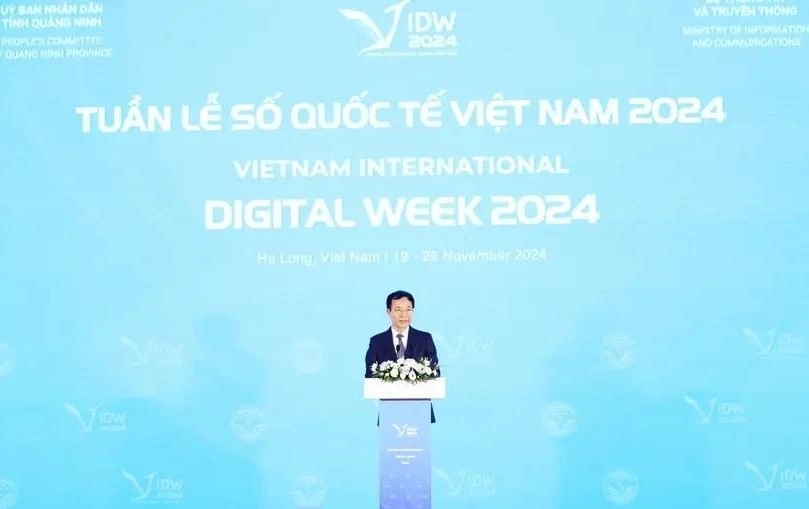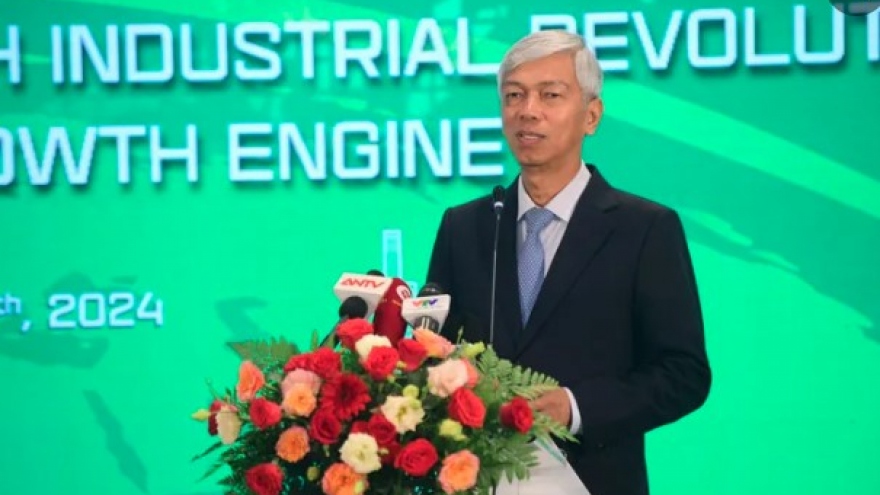AI is core technology of 4th Industrial Revolution: Minister
Minister of Information and Communications Nguyen Manh Hung on November 19 emphasised that artificial intelligence (AI) is the core technology of the 4th Industrial Revolution, as important as the steam engine of the first Industrial Revolution, the power generator of the 2nd Industrial Revolution and the personal computer of the 3rd Industrial Revolution.

At the opening of the Vietnam International Digital Week 2024 (VIDW 2024), Hung said the world is still looking for breakthrough application of AI. Virtual assistants can be a breakthrough application of AI but they must be personal virtual assistants, customised for each individual and each organisation based on their own data and knowledge, he said.
The minister said that the annual VIDW will be an opportunity for management agencies, international organisations, associations, and global digital businesses to discuss, share, and establish partnerships and joining hands to build a sustainable digital world.
The VIDW is taking place in Ha Long city in the northeastern province of Quang Ninh from November 19-22 under the theme “Virtual Assistant”. It attracted about 600 representatives from domestic and international organisations and tech firms.
During the week, participants will focus on exchanging, discussing, sharing new practices, approaches and initiatives to expand cooperation between countries, organisations and businesses on promoting the development of AI and deploying virtual assistants, with priority topics including virtual assistant applications, AI governance, Open RAN, legal framework for 5G, digital infrastructure development and digital human resources.
Dang Xuan Phuong, deputy secretary of the provincial Party Committee and Head of the National Assembly Delegation of Quang Ninh province, said that Quang Ninh has been determined to strongly develop a digital economy to create a foundation for development and new growth values in economic and social sectors and fields.
Quang Ninh will strive to make digital economy account for about 35% of the province's gross regional domestic product by 2030, he added.

